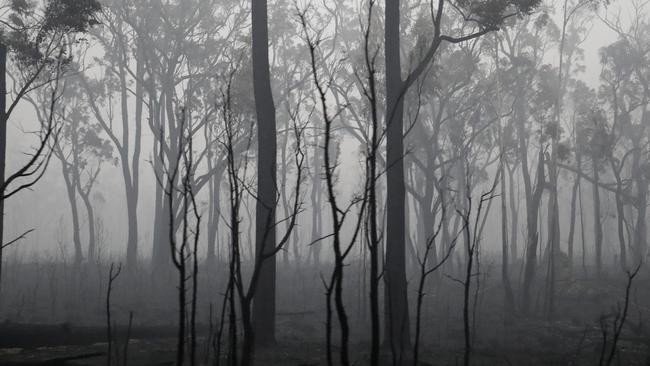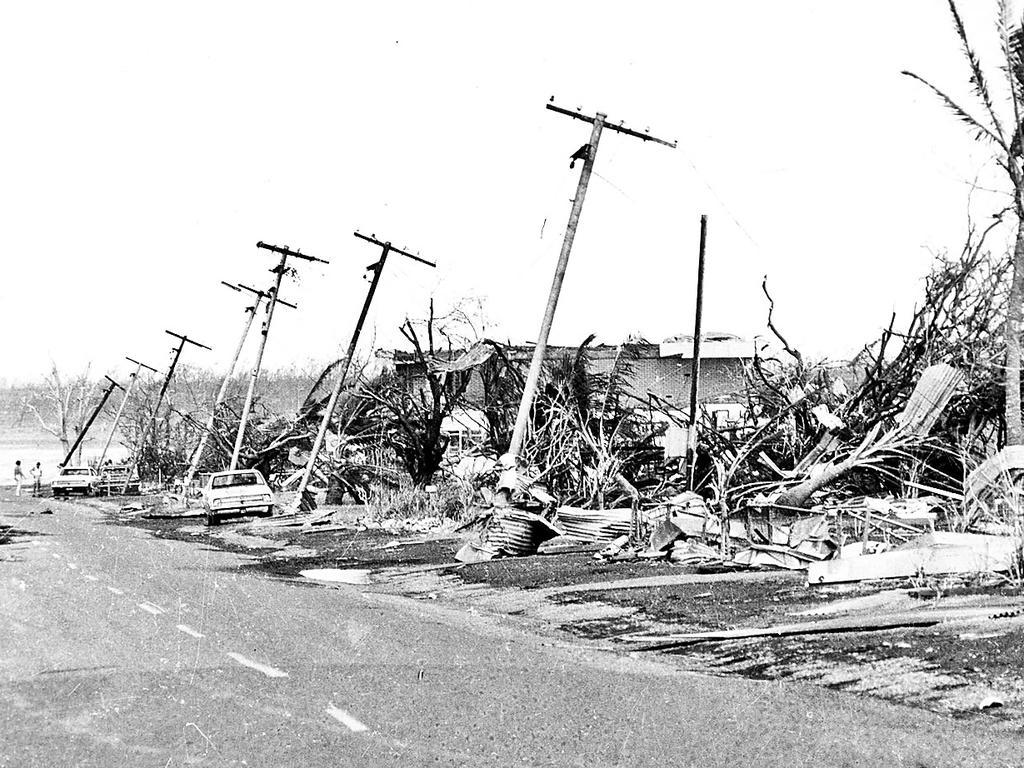
I emphasise that, like all Australians, I wish this opportunity had been created without the truly awful suffering and asset destruction.
The biggest single change the fires have created in the nation is that a much greater proportion of Australians now believe carbon is generating a climate problem. Whether their conclusion is right or wrong is irrelevant.
Once a community has a clear view, they expect their politicians to respond—that’s why Scott Morrison is looking at new emissions targets.
But the first response must be to recognise that most of the carbon reduction programs we have undertaken to date have been rendered ineffective because the fires released so much of the carbon we had stored in our forests.
We had not comprehended that our forests are really massive carbon storages which had absorbed huge amounts of carbon over generations.
Unfortunately the capital city elites, led by big sections of media, have campaigned to stop proper management of these carbon storages because they wanted the forest beauty untouched.
From a carbon emissions point of view it was pure folly, albeit understandable. We have now seen how these practices not only released carbon, so accelerating climate change but destroyed the species the capital city elites were trying to protect.
Managing our carbon storages (forests) properly now becomes a vital priority.
A second change looming is that if we are not very careful these fires will intensify the already large population rush to the cities. This would be a disaster for the nation.
But if we are smart we can use the fire recovery programs to accelerate decentralisation and again change the nation.
Simply rebuilding houses for those who still want to live in smaller rural centres makes no sense. If large numbers of people are going to live in rural centres they must have modern infrastructure. And so they need fast NBN, roads (or even better, fast rail), schools, medical centres and so on. We have the chance to curb city centralisation because building of that infrastructure will attract many people to rural areas and many will stay (and be joined by others) once the infrastructure is there.
But even with infrastructure it makes no sense to decentralise our population if we don’t properly manage our fire-prone carbon storages. Many carbon storage management ideas must be put on the table at the looming inquiry. Here are some.
* To date, insurance companies have been passive in carbon storage matters. They need to take their share of the responsibility for what happened and demand that rural communities insist on regular fuel reduction and that towns be surrounded by clear space (fire breaks). Towns that don’t get their volunteer firefighters to undertake these tasks may need to be slapped with huge insurance premium rises. Carrot and stick.
* I am not going to recommend how our carbon storages (forests) should be managed. I will leave it to the local experts and the inquiry. But here are a few pointers to consider. Sensible logging to enable access to forests in fire. The carbon removed (timber) can be stored in dwelling construction. And, along with fuel reduction, we then have a better chance to control the fires and protect species and assets.
We clearly need to better manage our high country, perhaps by bringing back cattle to reduce undergrowth rather than the current devastating techniques. The bushfire inquiry needs to really focus on the issues surrounding carbon storage management.
* Now that the community links climate with carbon we need to start making sensible decisions about power and energy generation rather than the uncoordinated policies of NSW, Victoria and South Australia.
The PM must urgently accelerate his major commitment at the election to make Tasmania “the battery of Australia”. Tasmania has excess hydro capacity but to get it to the mainland requires another interconnector. It’s only with that sort of connection that we can provide proper backup for the renewable generation installed by NSW, Victoria and South Australia. We also need better connections between the Snowy scheme and Victoria.
* We need to start to understand the opportunity this new world gives us to become a regional solar power supplier. The government needs to back Singapore’s plan to generate solar power in central Australia for Singapore. There is a lot of work to be done but the fact that the Singapore project is on the drawing board is significant. We can consider a similar project in North Queensland to pump water as part of a solar and pumped hydro scheme to divert water to the Murray Darling food bowl.
Imagine the support that might come to a prime minister who set out that sort of agenda and worked on it.
* Finally another issue for the fire inquiry. While our firefighters have done a wonderful job there are weaknesses in the management systems. When Victorian firefighters went to NSW they found there was restricted communication between paid firefighters and the volunteers. In Gippsland there had also been antagonism. There has been a mass exodus of volunteers firefighters from Victoria. In Victoria the volunteers will be back once the CFA is managed correctly. I suspect the same situation applies to NSW.
Meanwhile while not forgetting the need to help those who have suffered, we have a chance to transform our nation for the better.








If we grasp the opportunities created by the bushfire rebuilding program we have the chance to fundamentally improve the structure of our nation and its prosperity.